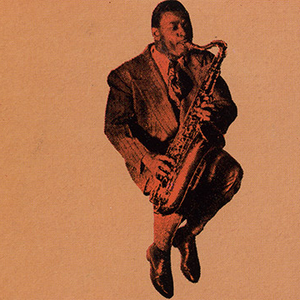
| Trackimage | Playbut | Trackname | Playbut | Trackname |
|---|---|---|---|---|
| 81550048 | Play | Cole Slaw | 00:00 Tools | |
| 81550049 | Play | Floorshow | 00:00 Tools | |
| 81550050 | Play | Culley Flower | 00:00 Tools | |
| 81550051 | Play | Central Avenue Breakdown | 00:00 Tools | |
| 81550052 | Play | Lindy Rock | 00:00 Tools | |
| 81550054 | Play | Waxie Maxie Boogie | 00:00 Tools | |
| 81550053 | Play | Nine O'Clock Express | 00:00 Tools | |
| 81550055 | Play | After Hours Session | 00:00 Tools | |
| 81550057 | Play | Cole Slaw (Sorghum Switch) | 00:00 Tools | |
| 81550056 | Play | Go, Floorshow! | 00:00 Tools | |
| 81550058 | Play | Bubbles | 00:00 Tools | |
| 81550059 | Play | Speed Limit | 00:00 Tools | |
| 81550060 | Play | Gone After Hours | 00:00 Tools | |
| 81550061 | Play | Cole Slaw - Sorghum Switch | 00:00 Tools | |
| 81550062 | Play | Hop 'N' Twist | 00:00 Tools | |
| 81550064 | Play | After Hour Session | 00:00 Tools | |
| 81550063 | Play | Rhumboogie Jive | 00:00 Tools | |
| 81550065 | Play | Coleslaw | 00:00 Tools | |
| 81550066 | Play | After Hour Sessions | 00:00 Tools | |
| 90208716 | Play | Waxie Maxie Boogie [12EB] | 00:00 Tools |

-
- 7,292
- plays
-
- 2,842
- listners
-
- 7292
- top track count
Frank "Floorshow" Culley (Salisbury, Maryland, August 7, 1917 - April 15, 1991, Newark, New Jersey) was an American rhythm & blues tenor saxophonist. Born in Maryland, but raised in Norfolk, Virginia, Frank Culley was a pioneer of the R&B tenor saxophone in the post-WW II period. He demonstrated how the instrument could be an exciting component in the emerging R&B sound. Culley began learning the tenor sax at the age of 10 and made his first professional mark playing with Johnson's Happy Pals around Richmond, Virginia. He formed his own R&B group in the mid-40s, recording for the Lenox label in NYC and backing Wynonie Harris on King. In 1948, he was signed by the fledgling Atlantic label and led its first house band, backing the early stars of R&B as well as recording some thirty tracks under his own name, always featuring his band's superb pianist, Harry Van Walls. Culley's first release on Atlantic, "Coleslaw", was a # 11 R&B hit in 1949, coupled with a wild version of the Lionel Hampton number "Central Avenue Breakdown" (Atlantic 874). The follow-up was "Floorshow" (Atlantic 880), from the same January 1949 session. This song gave him his nickname, known as he was for being a histrionic showman. The next single, "After Hour Session" (Atlantic 888), went to # 10 on the R&B charts ; the flip, "Rhumboogie Jive" is available on the CD "Let The Boogie Woogie Rock and Roll" (Ace 718). After leaving Atlantic in 1951, Culley recorded for RCA Victor, Parrot, Chess and Baton without success. He retired from music in 1975 and moved to Newark, NJ, where he died in 1991. Read more on Last.fm. User-contributed text is available under the Creative Commons By-SA License; additional terms may apply.